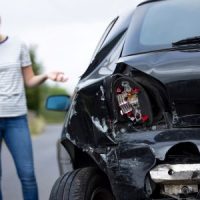How Is Fault Determined In A Car Accident?

One of the most important questions following a car accident is determining who is at fault. The level of fault associated with each party involved in the crash can have a substantial impact on the ultimate amount of compensation awarded in a personal injury case. An experienced and knowledgeable lawyer like those at Earnhart Law in Delray Beach can protect you from accusations of fault after a car accident and protect your right to compensation for your injury claims. To learn more, call or contact us today to schedule a free consultation.
Pure Comparative Fault
Florida uses a pure comparative fault rule for car accidents and other types of personal injury claims. This means that fault is determined for each party involved in the accident, and their amount of compensation for damages is reduced by that percentage of fault. For example, if a person suffers $100,000 in damages from a car accident and is found ten percent at fault, their overall compensation is reduced to $90,000. In the same example, if that person is found 99 percent at fault, their compensation is reduced to just $1,000. The determination of fault is often the critical issue that dictates whether an injury victim gets the compensation they deserve after a car accident.
How is Fault Determined?
Insurance companies often make determinations of fault after a car crash. An insurance adjuster will look at many pieces of evidence when making their determination, but they may also make a fault determination based on what is best for their company. Typically, an insurer will review the police report, witness statements, statements made by the drivers, and any photographic evidence to help determine fault for an initial insurance claim. An adjuster may also take state laws into account, if one driver admitted to breaking the law by speeding or texting while driving to determine fault in an accident.
The police also often make determinations of fault in their traffic accident reports. Typically, law enforcement arrives if there has been serious property damage, injury, or death because of an accident. Police officers usually assess the scene, speak with drivers, passengers, and other witnesses, and investigate other pieces of evidence like skid marks, vehicle damage, points of impact, and anything else that may speak to how the accident occurred before making a determination of fault.
If an injury claim goes to trial, the court may also be required to determine fault in an accident. Both sides will have an opportunity to present evidence about who was at fault for the crash, and either the judge or a jury will be required to make the determination. Usually the decision maker in court will have an opportunity to see everything that the insurance adjusters and police used in their fault determinations as well as any other evidence collected by the attorney of the victim involved in the case.
Talk to Our Office Now
If you or a loved one has been involved in a car accident, call or contact Earnhart Law today to speak with one of our experienced Delray Beach car accident lawyers and schedule a free consultation of your claims now.
Resource:
leg.state.fl.us/statutes/index.cfm?App_mode=Display_Statute&URL=0700-0799/0768/Sections/0768.81.html
